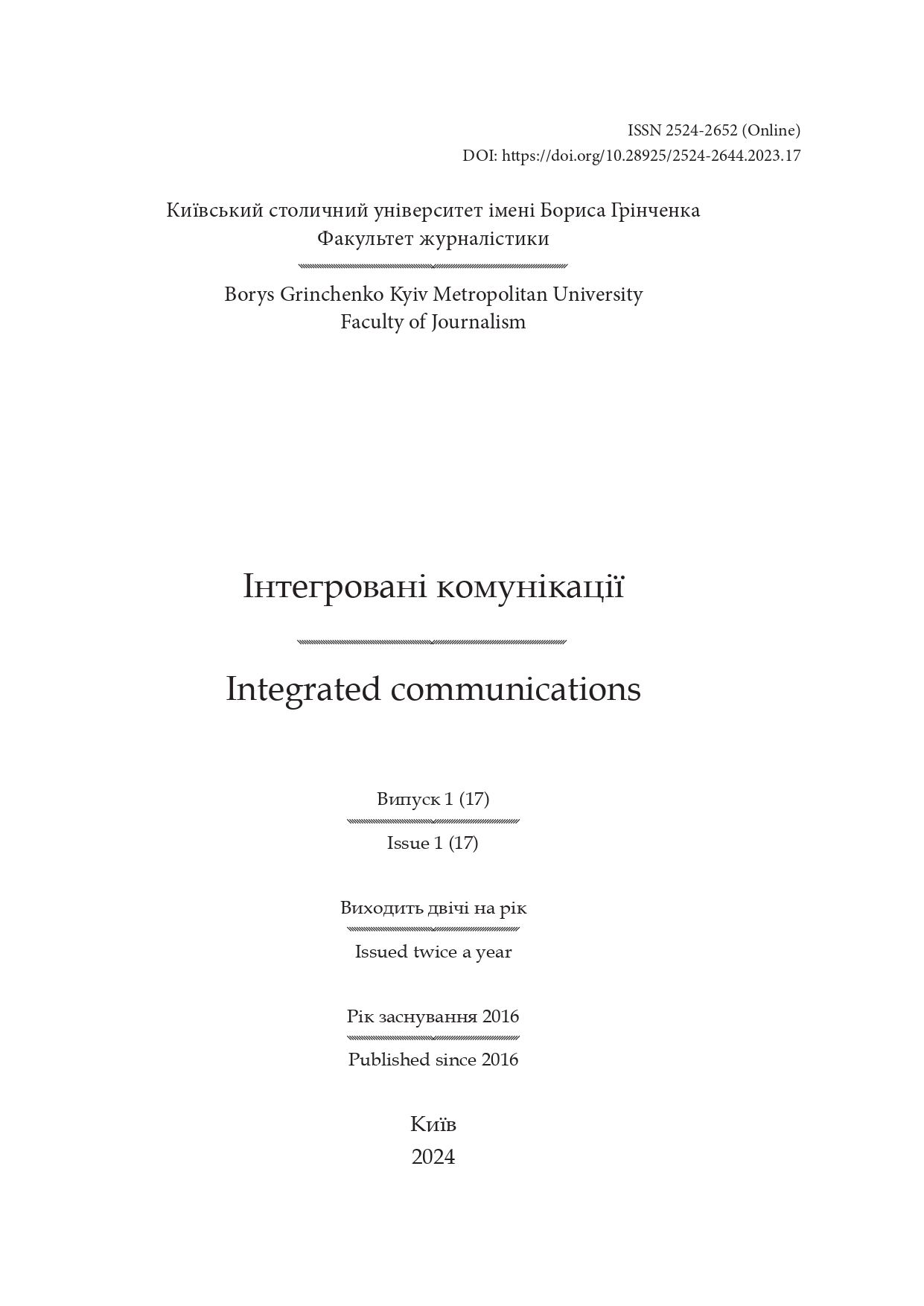MEDIA AND POLITICS: HOW MASS MEDIA INFLUENCE STUDENT`S POLITICAL BELIEFS AND PREFERECES
Abstract
In today’s world, full of information and manipulation, trust in the media becomes a key factor in the formation of political attitudes and beliefs of the younger generation. Media and politics interact in complex and ambiguous ways, influencing the political beliefs and preferences of different generations of society through their influence on the mind and feelings. Mass media, as an integral component of the global information panorama, perform the role not only of news providers but also of active agents of political socialization because it is in the university environment, where students are at the crossroads of educational and civic activity, that their worldview and future civic activity is formed. Positions This scientific article is devoted to the study of the influence of mass media on the political preferences and beliefs of Ukrainian students. Considering the theoretical aspects of the influence of the media on the formation of a political worldview, the practical dimensions of this influence are also analyzed, the role of media coverage in the formation of political beliefs among the student audience. Interaction with various media platforms, including traditional media and activity in digital social networks, not only provides students with the opportunity to receive various information but also forms their critical perception of political reality. It is important to understand exactly how trust or distrust of mass media determines the formation of political preferences and beliefs, what the markers of trust or distrust are, and how students see the ways of forming a politically conscious and active personality. The relevance of this topic also lies in the fact that political preferences and beliefs shape not only the individual worldview of an individual student but also determine the socio-political activity of subsequent generations. Understanding how media influence this process can serve as a basis for developing effective media education strategies to develop critical thinking and analytical skills among the student community.
Downloads
References
Sribnyak, I. (2018). History of journalism [Istoriya zhurnalisty`ky`]. Kyiv : International Scientific and Educational Consortium named after Lucien Febre, р.23.
Mytko, A. (2013). Trends in the formation of information democracy in the conditions of global development [Tendenciyi stanovlennya informacijnoyi demokratiyi v umovax global`nogo rozvy`tku]. Historical and political problems of the modern world, p. 95.
Manfred May (2011). Media Policy in the Information Society [Media-polity`ka v informacijnomu suspil`stvi]. Lane. with German. Klymchenko and V. Oliynyk; Ed. V. Ivanova. Kyiv : Acad. Sci. Ukr. Press, Free Press Center, 34 p.
Shkurenko, K. (2019). Mass media and politics: educational and methodological guide [Mas-media ta polity`ka: navchal`no-metody`chny`j posibny`k]. Mykolaiv, p.18.
Mass media and politics. Avaible at: https://iri.org.ua/navchalni-resursy/zasobi-masovoi-informacii-i-politika (accessed 05.02.2024).
Bojchuk, I. (2011). The influence of the mass media on the participationofUkrainiancitizensinelectioncampaigns [Vply`v zasobiv masovoyi informaciyi (ZMK) na uchast` gromadyan Ukrayiny` u vy`borchy`x kampaniyax].
Derzhava i pravo. Yury`dy`chni i polity`chni nauky`, vol. 59, p. 68.
KMIS: the level of trust in the Armed Forces increased to 96 % over the year, to 84 % in the president. Avaible at: https://www.radiosvoboda.org/a/news-kmis-opytuvannia-dovira/32221857.html (accessed 05.02.2024).
Zhitaryuk, M. (2021). Closure of News One, ZIK and «112 Ukraine» TV channels: media and political component. Ukrainian Information Space, vol. 7, p. 98.
Kokhanko, P., Denysiuk, S. The influence of mass media on the formation of Ukrainian national consciousness Avaible at: file:///C:/Users/ostad/Downloads/10314-36806-1-PB.pdf (accessed 05.02.2024).
Michael Andersen. There is a single standard: the material must be interesting, high-quality and honest. Avaible at: https://theukrainians.org/jschool-andersen (accessed 05.02.2024).
Komarchuk, O. (2016). Manipulative mass media technologies [Manipulyaty`vni texnologiyi ZMK]. Personality, Society, Politics. edited by C. Tereshchenko, Yu. Budnyka, V. Gerasimovicha. Part 1, Lublin, WSEI, p.120.




